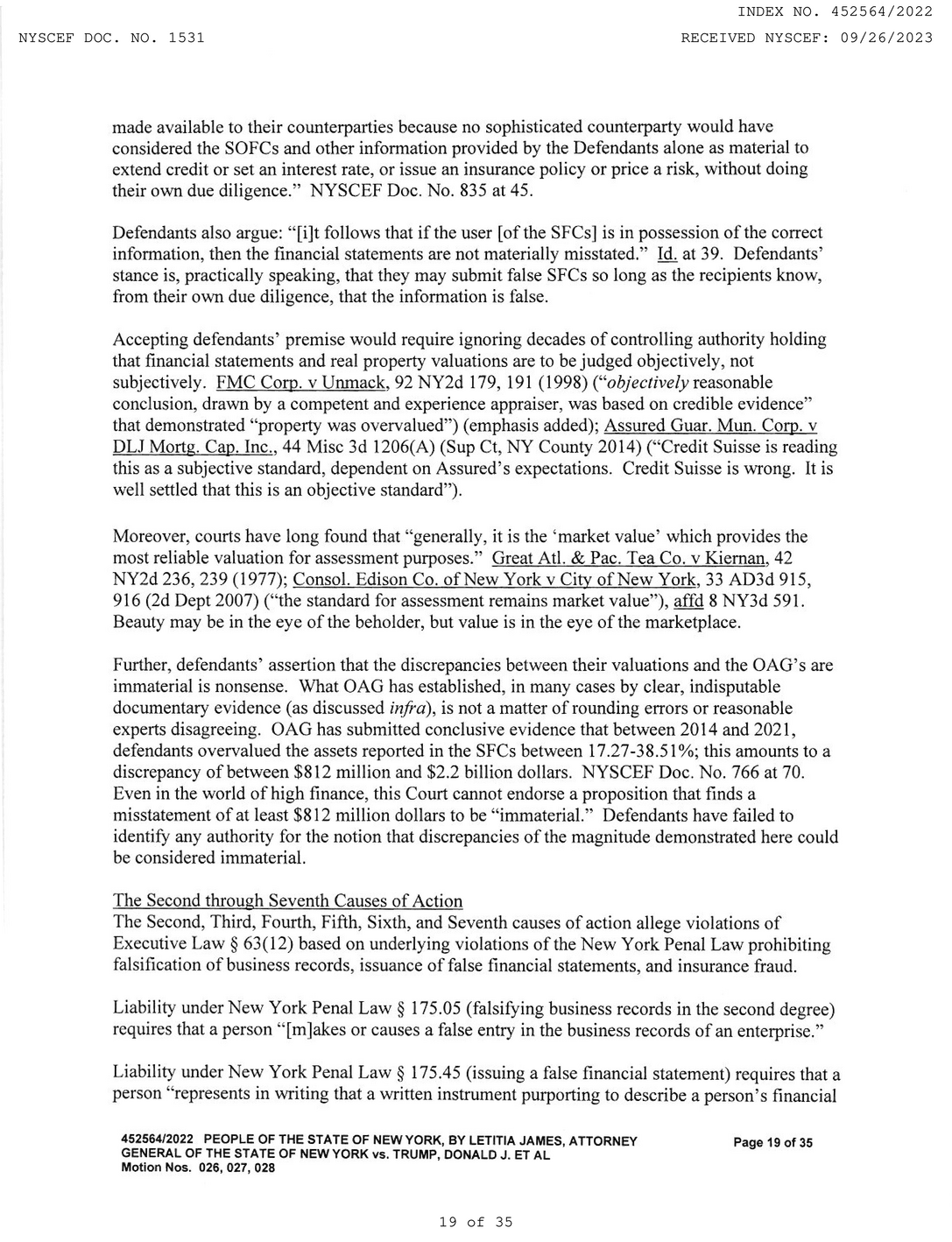Negotiation Or Confrontation? Harvard's Lawsuit And The Trump Administration's Response

Table of Contents
The Harvard Lawsuit: Affirmative Action Under Scrutiny
Background of the lawsuit:
The lawsuit, Students for Fair Admissions, Inc. v. President & Fellows of Harvard College, challenged Harvard's affirmative action admissions policies. Plaintiffs argued that Harvard's consideration of race in admissions violated the Equal Protection Clause of the Fourteenth Amendment, claiming it discriminated against Asian American applicants.
- Key details: The lawsuit alleged that Harvard penalized Asian American applicants by holding them to a higher standard than other racial groups.
- Legal precedents: The case relied heavily on prior Supreme Court decisions on affirmative action, particularly Grutter v. Bollinger and Gratz v. Bollinger, which addressed the permissible consideration of race in college admissions.
- Supreme Court challenge: The case ultimately reached the Supreme Court, leading to a landmark decision impacting affirmative action policies nationwide.
Harvard's Defense Strategy:
Harvard defended its admissions policies, arguing that a holistic review process, considering race as one factor among many, was crucial for achieving a diverse student body. They presented evidence of the educational benefits of diversity and the importance of considering a wide range of factors beyond academic merit.
- Key arguments: Harvard emphasized the educational value of diversity, arguing that a diverse student body enriches the learning environment for all students.
- Holistic admissions: Harvard highlighted its holistic review process, which considers a multitude of factors, including socioeconomic background, extracurricular activities, and personal essays, alongside academic achievement and race.
- Meritocracy vs. Diversity: The defense wrestled with the tension between a meritocratic admissions system and the goal of creating a diverse student body reflective of the nation's population.
The Trump Administration's Approach: Confrontation or Negotiation?
The Administration's Stance:
The Trump administration, through the Department of Justice, took a firm stance against affirmative action, arguing that race-conscious admissions policies were inherently discriminatory. This position aligned with the administration's broader conservative agenda.
- Department of Justice involvement: The DOJ filed an amicus brief supporting the plaintiffs, actively participating in the litigation against Harvard.
- Anti-affirmative action policy: The administration's actions reflected a broader policy shift toward eliminating race-based preferences in college admissions and other areas.
- Legal strategy: The administration's legal strategy focused on challenging the constitutionality of affirmative action policies through aggressive litigation.
Analyzing the Administration's Tactics:
The Trump administration's approach to the Harvard lawsuit leaned heavily towards confrontation rather than negotiation. There were few, if any, documented attempts to engage in discussions with Harvard to find a mutually agreeable solution.
- Confrontational tactics: The DOJ’s direct involvement and support of the plaintiffs demonstrated a clear confrontational stance.
- Lack of negotiation attempts: The administration did not publicly pursue any avenues for negotiation or compromise with Harvard.
- Political motivations: The administration's actions likely reflected broader political aims, using the lawsuit as a platform to advance its anti-affirmative action agenda.
Outcomes and Analysis: Lessons Learned from the Harvard Case
The Court's Decision and Its Implications:
In a landmark 2023 decision, the Supreme Court ruled that race cannot be a determining factor in college admissions, effectively ending affirmative action as it had been practiced in higher education. This ruling has significant implications for university admissions policies nationwide.
- Key aspects of the ruling: The Court determined that Harvard's admissions program violated the Equal Protection Clause.
- Legal reasoning: The majority opinion emphasized the principle of colorblindness in admissions.
- Broader consequences: The decision is expected to lead to significant changes in the racial demographics of college campuses across the country.
The Effectiveness of Negotiation vs. Confrontation:
The Harvard case highlights the potential costs and benefits of both negotiation and confrontation in high-stakes legal battles. While the administration's confrontational approach achieved its immediate policy goal, it came at the cost of potential collaboration and fostered increased polarization.
- Confrontation consequences: The confrontational approach may have deepened societal divisions and undermined efforts towards collaborative solutions.
- Effective negotiation: A negotiated approach might have fostered more constructive dialogue and possibly resulted in less divisive outcomes.
- Legal costs: The legal fees associated with prolonged litigation were substantial for all parties involved.
- Policy outcomes: The Supreme Court’s decision represents a significant policy shift with wide-ranging implications for higher education.
Conclusion: Negotiation or Confrontation? A Look Ahead
The Harvard lawsuit illustrates the complexities of choosing between negotiation and confrontation in addressing significant social and legal issues. While the Trump administration's confrontational approach ultimately achieved its desired policy outcome concerning affirmative action, it did so at a potential cost to national unity and productive discourse. Understanding the balance between negotiation and confrontation remains crucial in navigating complex legal battles like the Harvard case. Further research into the strategic implications of these approaches is essential for shaping future policy debates on affirmative action and similar issues where competing values and interests are at stake.

Featured Posts
-
 Ella Bleu Travoltas Dazzling Makeover At 24 A New Era For The Travolta Daughter
Apr 24, 2025
Ella Bleu Travoltas Dazzling Makeover At 24 A New Era For The Travolta Daughter
Apr 24, 2025 -
 Nifty50s Ascent Analyzing The Positive Market Trends In India
Apr 24, 2025
Nifty50s Ascent Analyzing The Positive Market Trends In India
Apr 24, 2025 -
 Trumps Immigration Policies Face Significant Legal Setbacks
Apr 24, 2025
Trumps Immigration Policies Face Significant Legal Setbacks
Apr 24, 2025 -
 Remembering Sophie Nyweide Child Star Of Mammoth And Noah Passes Away At 24
Apr 24, 2025
Remembering Sophie Nyweide Child Star Of Mammoth And Noah Passes Away At 24
Apr 24, 2025 -
 Covid 19 Test Fraud Lab Owner Convicted
Apr 24, 2025
Covid 19 Test Fraud Lab Owner Convicted
Apr 24, 2025
